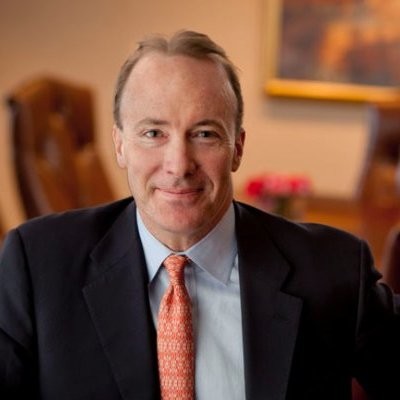There’s a huge divide between what C-suite executives say they are doing to advance issues like sustainability and equality, and what employees actually see on the ground, confirmed a new study by global leadership advisory and executive search firm, Russell Reynolds Associates.
For example, although 73% of C-suite leaders say that their organisations place the same importance on sustainability as they do on profits; just 48% of employees say the same. Furthermore, while 79% of C-suite executives say the environmental practices of their company are as good as industry best practices; only 54% of their employees actually agree. Leaders should be mindful to understand and close this perception gap, highlighted the global study; entitled Divides and Dividends: Leadership Actions for a More Sustainable Future.
The report revealed what a cross-section of the global workforce thinks about business leaders’ efforts to advance the sustainability agenda; and identified challenges and opportunities related to environmental issues, employee equality, and organisational complexity. It found a disconnect between not only what C-suite executives say they are doing on sustainability versus what employees see on the ground; but also perceptions on employee equality.
WORKPLACE BIAS & FAVOURITISM
The study revealed that diversity, equity and inclusion challenges run deep, with bias and favouritism still having a strong hold at the top. In fact, 64% of C-Suite executives confirmed that their firm’s senior leaders show a bias or favouritism towards those like them. When asked about promotions, 61% of C-suite leaders said it is easier for men to get promoted than women; regardless of their capability and performance. Additionally, 62% of C-suite leaders believe there is an issue regarding ethnic bias. While many organisations are working hard to improve the diversity of their leadership teams and setting concrete goals, “C-Suite leaders are clear-eyed on how much more progress is needed”, noted the study.

Image credit: Vlada Karpovich, Pexels
It also pointed to the importance of developing and empowering next generation leaders as one of the clearest pathways to addressing these issues; by shifting mindset and culture. In fact, next-generation leaders are well positioned to become drivers of sustainability. The survey found that four in 10 have had three or more job responsibilities that have involved improving environmental or social outcomes; such as changing processes, creating or redesigning products. Organisations have an opportunity to further enable and empower these leaders, according to the study.
SLOW LEADERSHIP PROGRESS
C-suite leaders say the greatest barriers to embedding sustainability across the business are slow-changing company culture (36%); and organisational complexity (35%). Other barriers include a lack of drive from senior leadership (30%) and a lack of organisational investment (28%). The survey also suggests that many leaders may lack the soft skills to spur action on sustainability. Few employees see their senior leaders exhibiting relevant soft skills. Only around one-third of employees say the senior-most leaders at their organisation exhibit transparency (37%), humanity (35%) and hopefulness (34%). Even fewer say they display humility (23%) and self-awareness (24%); or that they are authentic (29%) and lead by example (29%).
The study emphasises the need for leaders to inspire change and incite action by using soft skills; including self-awareness, humility and authenticity to overcome obstacles and show progress. “While discussion about sustainability has gone mainstream; and many organisations are quick to promote their sustainability credentials, rhetoric does not always equal action,” stated Clarke Murphy, CEO of Russell Reynolds Associates. “We set out to conduct a survey that is unprecedented in its scope and scale, to uncover the divides and disparities that threaten global business in order to identify the opportunities to bridge the gap.”

BUILDING A BETTER FUTURE FOR ALL
“We are at a crossroads where businesses have an incredible opportunity to build, sustain and benefit from a better future for all,” added Murphy. “In uncovering the divides that effect businesses globally, we are uniquely positioned to offer solutions that incite real change to generate cultural and business transformation for people, planet and profit.”
Commenting on the survey results, Alan Jope, CEO of Unilever, said he was “somewhat disappointed by the findings”. “They highlight that sustainability remains misunderstood by many. We know that the average time horizon for investors is 13 years; continuing on our current path, the world will be a terrible place in 13 years. We must act today,” urged Jope. “Business must seize the dual opportunity to improve performance by putting sustainability at the heart of business strategies and secure the future for our people and our planet.”

CONCRETE ACTIONS
Adding to his comments, Ilham Kadri, CEO and Chair of the Executive Committee, Solvay, stated: “As this research from Russell Reynolds Associates makes clear, organisations need to go beyond risk and reputational management; and focus on harm reduction and value creation. To do that, leaders not only need to communicate a compelling vision with great ambition; they also need to embed sustainability and concrete actions into their strategy, operations and leadership culture to improve drastically on climate, nature and people.”

Fielded across 11 countries, the global report surveyed more than 9,500 people from three distinct groups (C-suite executives, next-generation leaders and employees) to understand the state of sustainability within organisations today. The results reveal how these groups view several key business issues; including the maturity of their organisation’s sustainability strategy, and the progress company leaders are making against that roadmap. Click here to access the global report.
Despite business leaders making pledges to become more diverse, fair and climate-conscious, 55% have yet to fully embed purpose into their firms. Click here to read more.







































